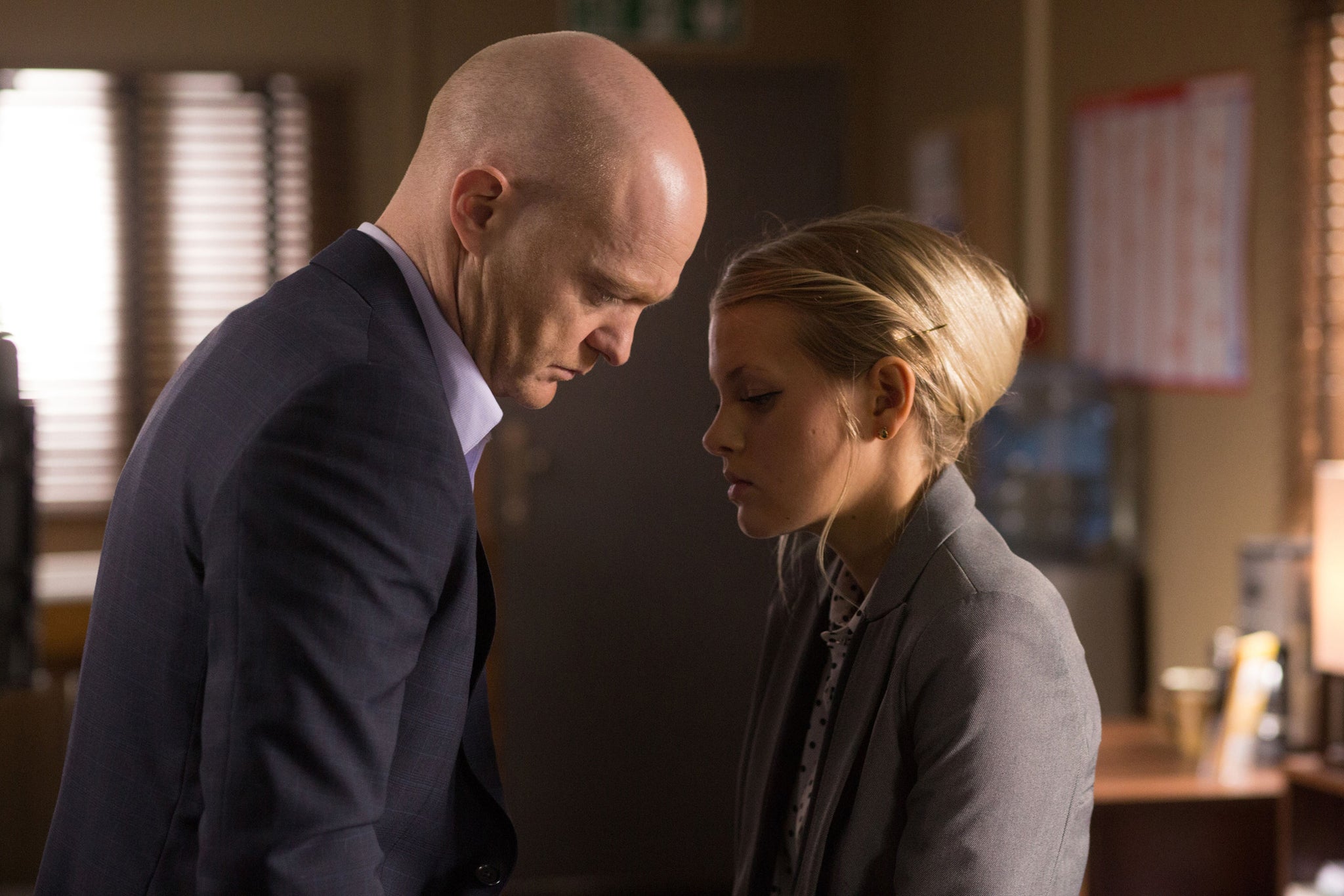The erosion of the 9pm watershed is damaging young minds
How can children learn that abuse is abnormal and shocking when it's on 'normal' TV?

On Wednesday my nine-year-old daughter and I were watching Dog Rescuers on Channel 5, presented by Alan Davies. A seemingly safe choice. Despite the CCTV footage of a puppy having its head repeatedly slammed in a doorway, we were reassured by the cosy, lisping narrative from Alan, wrapped in his parka, who told us of a happier outcome for the dog. During the break, I went to make some tea only to find my daughter clinging to me, shaking with angry, outraged, tears. Once she could speak, she explained there had been a trailer, more CCTV footage, this time of a man throwing a woman on to a bed before beating her around the head with a lamp.
The greater violence unexpectedly appearing after the "lesser" violence had overwhelmed her. This was before the 9pm watershed (50 years old last week) when content portraying – or even referring to – "graphic violence" is not permitted. When did footage of a puppy being beaten, swiftly followed by a woman being beaten, stop being "graphic violence"?
Many children witness violence in their homes. Posts on the Mumsnet website testify that the reaction of most mothers is to insist, unequivocally, that this is unacceptable. It is acknowledged that although many women will experience repeated instances of violent abuse from their partners, once their children are forced to witness it they feel an imperative to stop it. Some years ago police who had been called to a scene of domestic violence advised the mother to "just leave – this is not going to get any better". A Relate counsellor told her: "The only thing you need to think about now is how you are going to leave".
She and her children moved away from their home. They lost financial security and were forced to make a new life, among new people, with the children at new schools. It would have been easier to ignore what had been happening and allow her daughters to grow up associating marriage with violence and police visits, seeing violence as part of a "real" relationship.
We are told not to tolerate it; to leave our homes; that it is abnormal, unacceptable. Yet mainstream soap operas contain so many scenes of violence that as our children grow up they are bound to become desensitised to it. Our news stories pull no punches. Adults might be voyeurs, fascinated by human cruelty on screen, but children are not. The Daleks we hid from behind the sofa are meaningless; the horror for children now come from real people in familiar situations.
How are they to learn that listening to a man yell at a woman for hours is abnormal and shocking when it is on "normal" TV? Relate specifies behaviour that constitutes abuse – apparently we no longer know that being hit, yelled at, restrained, verbally abused is unacceptable. It has to be spelt out. I hope for my children and grandchildren there is a shift; otherwise, I dread where we're heading.

Join our commenting forum
Join thought-provoking conversations, follow other Independent readers and see their replies